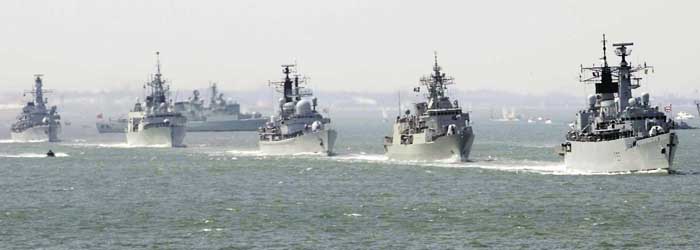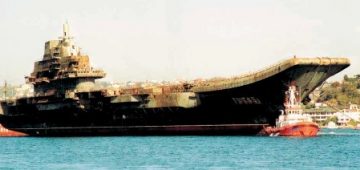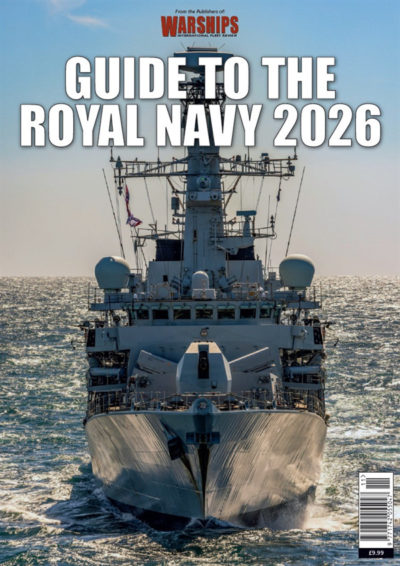Commentary – Odin’s Eye

Missing from the hastily completed and deservedly much-criticised Strategic Defence and Security Review (SDSR) was any proper mention of one of the greatest British geo-political advantages, which Britain enjoys with half the world. It is an advantage that Conservative Prime Minister Winston Churchill referred to when he said: “Let us therefore brace ourselves to our duties, and so bear ourselves that, if the British Empire and its Commonwealth lasts for a thousand years, men will still say, ‘This was their finest hour!’“

In fact, in 75 pages of turgid SDSR prose (apart from a mention in the context of the Foreign and Commonwealth Office) there is but a single reference to the Commonwealth, which says that in Britain’s so-called multilateral engagement ‘the UK enjoys a central position in key multilateral institutions such as the UN Security Council and the international financial institutions, and is a leading member of the European Union, NATO, G8, G20, and the Commonwealth.’ To Odin it seems odd that a Conservative-led government, albeit in coalition with another political party, should forget the generous references, which Britain’s greatest 20th Century prime minister always made to the Commonwealth. In matters of defence and security it is shameful that the Commonwealth should have such little prominence. The last time Odin looked, Britain was still a member of, for example, the Five Power Defence Arrangements (FPDA) with Australia, Malaysia, New Zealand and Singapore, all of them Commonwealth nations. The FPDA, which operates at political and military level, and is celebrating the 40th year since its foundation, has played a key role in enhancing regional security and continues to evolve as an important component of the South East Asian regional security architecture. Yet in an entire section of the SDSR given over to ‘Alliances and Partnerships’ the FPDA is not mentioned once. It is these failures and omissions in the hastily cobbled together SDSR that show how far Britain’s present government – but not her people – have discarded enduring strategic relationships and neglected a means to safeguard vital UK interests in what is the key developing region in the world. If the UK government through the SDSR really means, as it says it does, to develop ‘models of practical bilateral defence and security cooperation with a range of allies and partners’ and to encourage ‘an outward-facing European Union that promotes security and prosperity’, then why does it ignore the Commonwealth of Nations? The Commonwealth is composed of 54 nation states bound by a framework of common values and goals including the promotion of democracy, human rights, good governance, the rule of law, individual liberty, egalitarianism, free trade, multilateralism, and world peace. As well as the Commonwealth Secretariat, there is already a Commonwealth Foundation, not forgetting other means of ‘bonding’ such as the Commonwealth Games, a Commonwealth Lawyers Association, the Commonwealth War Graves Commission, the Commonwealth of Learning and Commonwealth Business Council. What is missing from this strong suit of cards is a Commonwealth Security Planning Council, and under this there should be a Commonwealth Navy. Last month at Oxford, Rear Admiral James Goldrick RAN, Acting Commander of the Australian Defence College, gave a talk entitled ‘From Clones to Counterparts: a Century of Global Naval Cooperation.’ In the first part of the last century there was a serious attempt to create an Empire Navy, which foundered on the failure of the Admiralty in London to show willingness to delegate any authority. Goldrick reminded his audience, however, that the old Dominion navies quickly grew to independence, and they did so by not paying any large overheads and drawing on the infrastructure maintained by the parent navy, the Royal Navy. The Australian, Canadian and Indian navies, for example, were all able to develop Fleet Air Arms and to put carriers to sea after WW2 because the RN made ships, aircraft and – perhaps as important – expertise available to do so. Goldrick contrasted this experience with that of the South American navies which had taken much longer to try to emulate any kind of similar capability. Goldrick highlighted that governments around the world have cut their defence budgets, and he forecast that, in the present financial climate, an accelerating lack of investment in modern, sustainable armed forces. They are likely to become less able to maintain a full spectrum of capability and expertise, and consequently liable to be overstretched. In the case of the RN, as Odin has already pointed out, even before the current economic crisis, the peace dividend of the 1990s led to a huge decrease in ships. Where the RN once claimed it needed 20 flotillas of destroyers, there are fewer than 20 destroyers and frigates operational at any one time. The British fleet is taking chances and exposing itself via risky capability gaps. In some cases expertise may already be paper-thin. During his recent UK speech Goldrick suggested, if not actually a Commonwealth Navy, then a Commonwealth of Navies based around the core of competent fleets that have evolved out of the Royal Navy. These include navies such as those of Australia, Canada, India, New Zealand and Singapore and a score of others that might once have been part of some putative Empire Navy. He noted that these navies encompass some of the most effective fleets in the world, and also include one of the largest and fastest evolving, the Indian Navy. Such an idea – with the Royal Navy of course deeply embedded – would have a head start, as the navies, like the Commonwealth itself, share not just superficial resemblances to each other, but their basic values, traditions and concepts. Moreover, they share a common history. The costs of maintaining a full spectrum of expertise are so large, that today some of them could consider specialising within the framework of the Commonwealth of Navies. Specifically, Goldrick proposed that in the Commonwealth of Navies, each fleet would be responsible for an area of competence. All navies in the Commonwealth would build whatever spectrum of forces they needed, but be able to draw on the specific competence of another fleet as required. For example, the RN might specialise in amphibious warfare and the RCN in Anti-Submarine Warfare (ASW). Even the mighty US Navy will, sooner or later, need to drawdown more than it has already and if it joined the Commonwealth of Navies, its natural speciality could be naval aviation. A Commonwealth of Navies, with or without the USN, is not a wholly new idea. Alfred Thayer Mahan wrote about what he called the Anglo-Saxon consortium, meaning the navies of the USA and of the British Empire, and only a few years ago the right-wing Project for the New American Century relied heavily on what Mahan might have recognised as this Anglo-Saxon consortium, but under the USA’s leadership. However, like the Commonwealth itself, the Commonwealth of Navies would not be a political union, but an intergovernmental organisation in which navies would be equal in status. Nor would it be an operational union, though there ought to be increased opportunity for the partner navies to operate together and to exchange personnel. There’s sense in this because, frankly, Britain is more likely to have common interests, whether it is the defeat of piracy or the defence of trade in distant waters, with members of the Commonwealth of Navies, than it is to have shared interests with even close European neighbours in the dozen other more arcane institutions listed in the SDSR.
Pictured: Commonwealth warships in line astern at the Trafalgar 200 review in June 2005, off Portsmouth. Photo: Nigel Andrews.







Comments
Sorry, comments are closed for this item